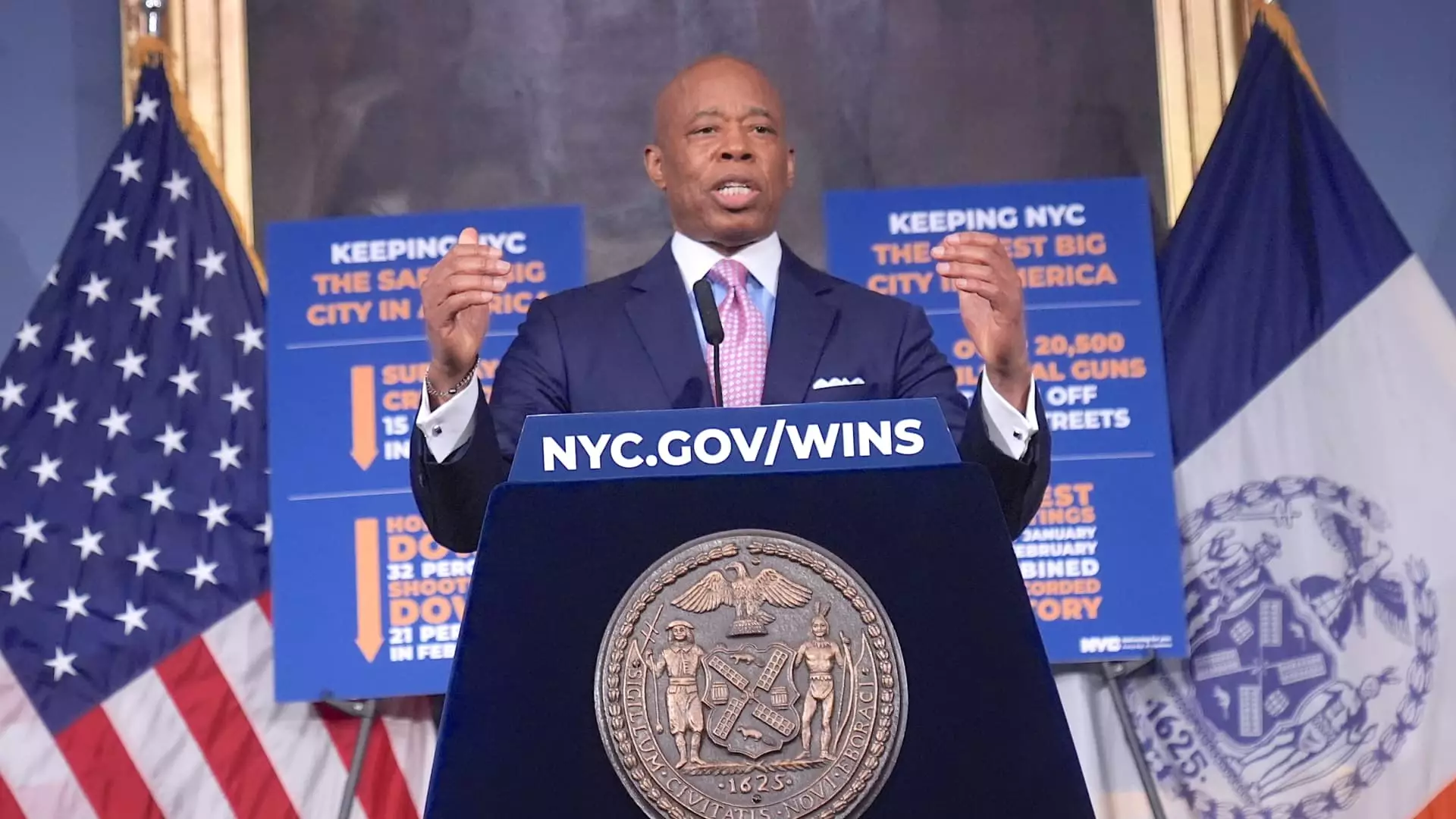In a remarkable about-face, New York City Mayor Eric Adams has announced his decision to run for reelection as an independent candidate, a strategic move that follows the dismissal of federal corruption charges against him. This startling decision, made just one day after a judge lifted the legal cloud that had loomed over him, raises critical questions about the integrity of leadership and the motivations behind political maneuvering in the Big Apple. Adams’ declaration that he will prioritize “New York’s people before politics and party” seems more like a public relations statement than a genuine commitment to reform. At its heart, this political shift reveals the intricate interplay between governance and self-preservation.
The Shadow of Corruption
It is difficult to overlook the shrouded past of Adams, who found himself embroiled in allegations concerning bribes and luxurious gifts from foreign nationals. While a U.S. District Judge deemed these accusations baseless and dismissed the charges, it is essential to consider the implications of such a scandal on public trust in leadership. By framing his campaign as an independent movement, Adams may be attempting to distance himself from the very party that nurtured his political career. His narrative positions him as a victim—a “racehorse that has been held back”—but does that not also point to a troubling trend in leadership where individuals skirt accountability by pivoting to populism?
The Underside of Independence
Adams’ newfound independence is masked in rhetoric that champions the working class, yet it reeks of opportunism. Can we genuinely believe that an independent run will herald a change for all New Yorkers, or is it merely a tactic to sidestep a crowded Democratic primary filled with strong contenders, including the likes of Andrew Cuomo? The very notion of running as an independent while still identifying as a Democrat raises an eyebrow. Is this political identity crisis a cry for authenticity, or simply a means to consolidate power in a crowded landscape?
In his announcement, Adams emphasized the concept of a “solid base” outside of Manhattan, suggesting that he recognizes the necessity to broaden his appeal to voters disenchanted with the traditional party lines. However, this also begs the question: will his campaign policies genuinely cater to the needs of diverse populations across the boroughs, or will they reflect a tailored narrative aimed solely at salvaging his political career?
The Integrity of Leadership
Adams’ insistence on his integrity, claiming the accusations against him were false, falters under the weight of public scrutiny. While acknowledging that he trusted the wrong people, he simultaneously deflects accountability, which could alienate voters who crave authenticity and transparency in their leaders. The very fabric of political leadership lies in the delicate balance between power and responsibility, and when that balance tilts, what is the cost to public trust?
Furthermore, it raises a broader question about the role of the justice system in politics. The dismissal of charges—seen as a vindication by some—offers a safe haven for leaders whose indiscretions may otherwise come to light. Does this not risk normalizing the idea that legal challenges can be sidestepped or weaponized to undermine opponents?
A Campaign of Doubt and Distrust
As Adams prepares his independent campaign, the skepticism surrounding his motives is palpable. His narrative of a “real independent campaign” is juxtaposed against the backdrop of allegations that still linger. The removal of legal barriers does not cleanse his record of public perception, nor does it foster trust among a wary electorate. In transitioning to an independent candidate, Adams steps into a precarious position, one where every move will be scrutinized, and public confidence can be fleeting.
The race unfolds amid an array of Democratic challengers who will undoubtedly leverage Adams’ past as a point of contention. His appeal will depend not solely on his political vision but also on whether he can manage to overcome the burden of suspicion that may linger in the minds of New Yorkers. As we inch closer to the upcoming elections, one must wonder: can Adams successfully transform public opinion, or will he remain ensnared in the shadows of doubt, forever marked by past controversies? The trajectory of his campaign and the integrity of his leadership will be pivotal in determining the future of New York City politics.

